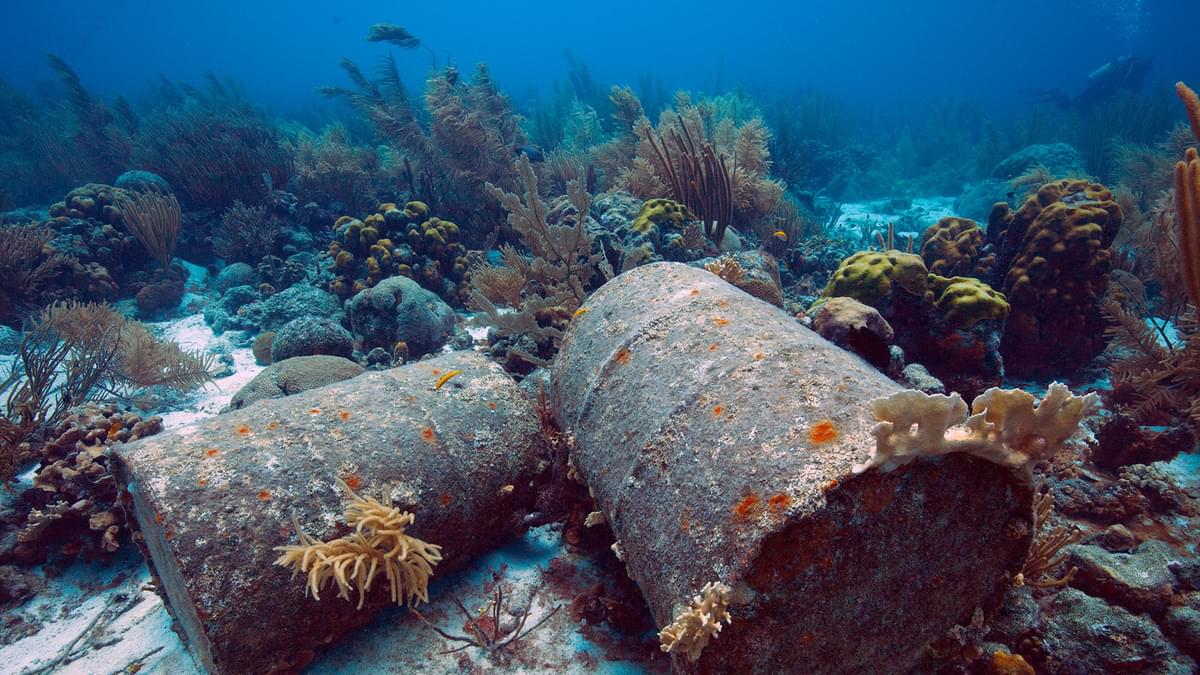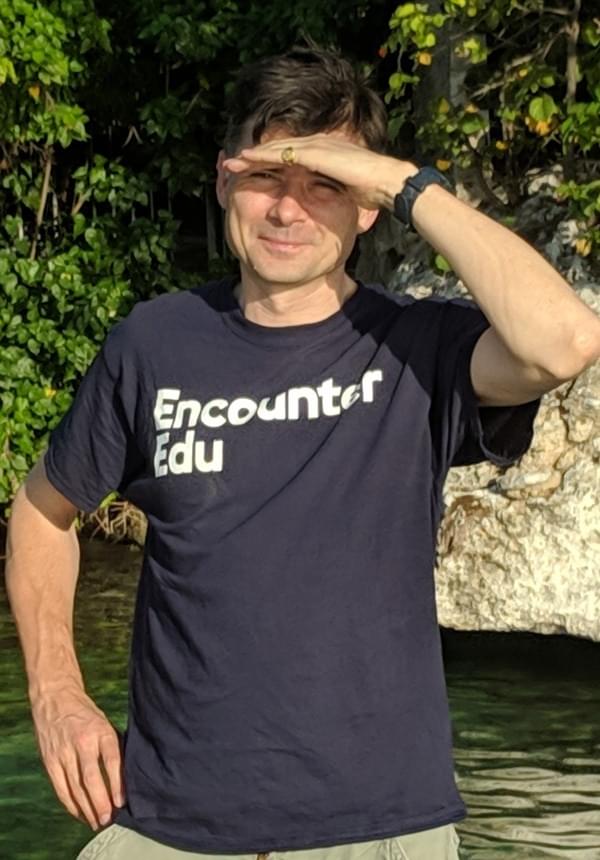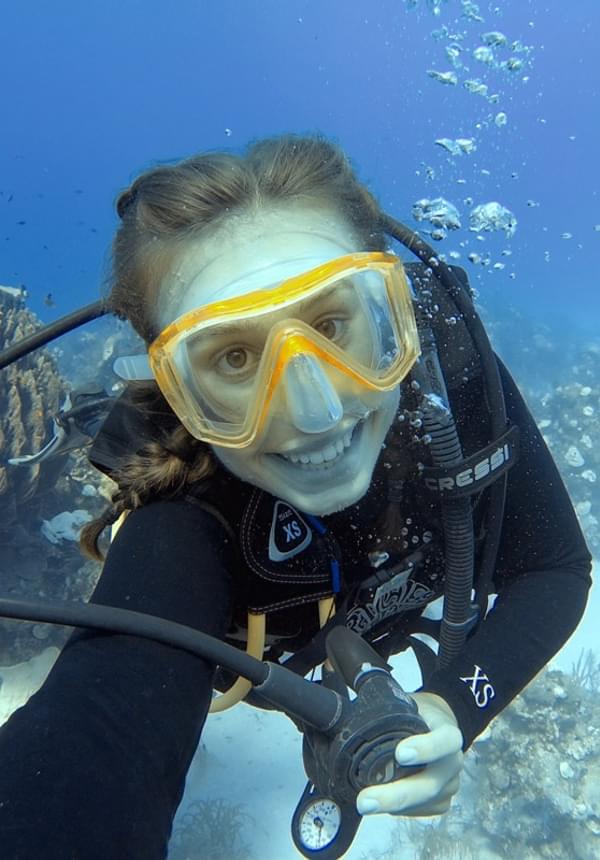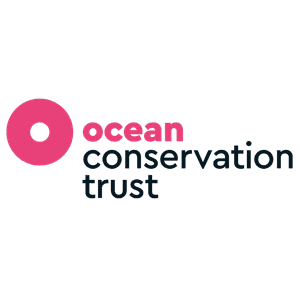
Human impact on coral
In this live lesson, students will learn about how human behaviour affects the coral ecosystem, and conduct two short investigations into how increased carbon dioxide levels are harming reefs. Jamie will be joined by Sarah Cryer, Research student at the National Oceanography Centre for this lesson.
Curriculum links
Living things and their habitats
- Recognise that environments can change and that this can sometimes pose dangers to living things
- Explore examples of human impact (both positive and negative) on environments
Preparation
If you have never joined a live lesson before, see the guidance hub, where you will find technical and educational support.
Live lessons work best when students have some prior knowledge and have prepared questions. You can select from any of the lessons in the Coral Oceans unit for ages 7-11 or teach a one-off Coral Live prep lesson.
Questions generated by your class can be submitted via the Encounter Live tab in your Encounter Edu profile.
This lesson is based around the Ocean acidification in a cup and Dissolving 'coral' in vinegar activities and if your students are following live, you will need to gather these activity resources in advance.
Learners are encouraged to explore the 100 Island Challenge, which documents coral reefs and their variation, in order to protect this vital, biodiverse environment.
Session steps
1. Introduction (5 mins)
Jamie will open the session with a welcome and brief introduction to the expedition.
2. Subject knowledge (10 mins)
Jamie will ask discuss how human activity is harming coral reefs and introduce students to some of the threats to the coral reef including coral bleaching, ocean acidification and coastal developments.
3. Activity time (15 mins)
Jamie will begin demonstrating the two activities, Ocean acidification in a cup and Dissolving coral in vinegar. Students can follow along in real-time. During this time, you can submit your students’ questions via the Live chat.
4. Q&A and conclusion (15 mins)
After completing the activity Jamie and Sarah will answer some of the questions students have submitted before suggesting other Coral Live activities you might like to try.
Speakers

Jamie Buchanan-Dunlop
Executive Director, Encounter Edu

Sarah Cryer
Research Student, National Oceanography Centre
Human impact on coral
In this live lesson, students will learn about how human behaviour affects the coral ecosystem, and conduct two short investigations into how increased carbon dioxide levels are harming reefs. Jamie will be joined by Sarah Cryer, Research student at the National Oceanography Centre for this lesson.
Curriculum links
Living things and their habitats
- Recognise that environments can change and that this can sometimes pose dangers to living things
- Explore examples of human impact (both positive and negative) on environments
Preparation
If you have never joined a live lesson before, see the guidance hub, where you will find technical and educational support.
Live lessons work best when students have some prior knowledge and have prepared questions. You can select from any of the lessons in the Coral Oceans unit for ages 7-11 or teach a one-off Coral Live prep lesson.
Questions generated by your class can be submitted via the Encounter Live tab in your Encounter Edu profile.
This lesson is based around the Ocean acidification in a cup and Dissolving 'coral' in vinegar activities and if your students are following live, you will need to gather these activity resources in advance.
Learners are encouraged to explore the 100 Island Challenge, which documents coral reefs and their variation, in order to protect this vital, biodiverse environment.
Session steps
1. Introduction (5 mins)
Jamie will open the session with a welcome and brief introduction to the expedition.
2. Subject knowledge (10 mins)
Jamie will ask discuss how human activity is harming coral reefs and introduce students to some of the threats to the coral reef including coral bleaching, ocean acidification and coastal developments.
3. Activity time (15 mins)
Jamie will begin demonstrating the two activities, Ocean acidification in a cup and Dissolving coral in vinegar. Students can follow along in real-time. During this time, you can submit your students’ questions via the Live chat.
4. Q&A and conclusion (15 mins)
After completing the activity Jamie and Sarah will answer some of the questions students have submitted before suggesting other Coral Live activities you might like to try.
Speakers

Jamie Buchanan-Dunlop
Executive Director, Encounter Edu

Sarah Cryer
Research Student, National Oceanography Centre





